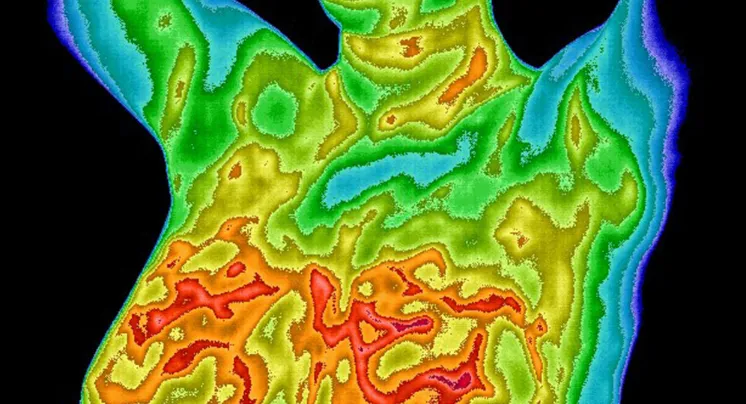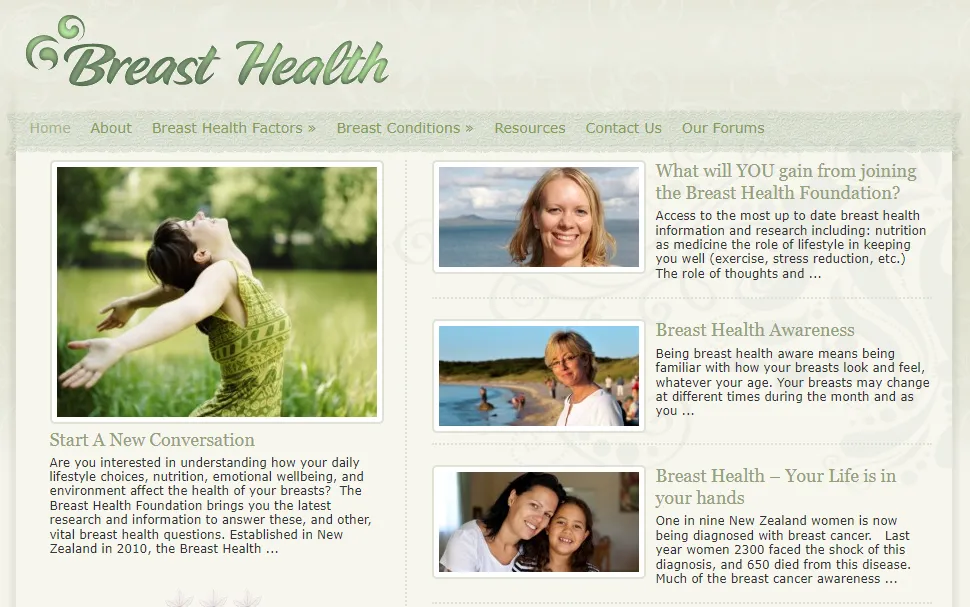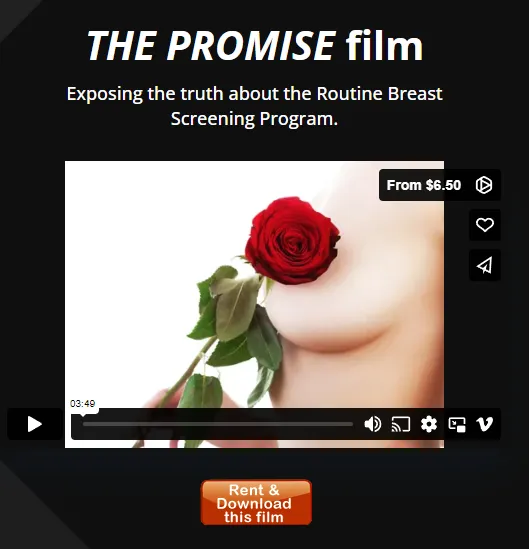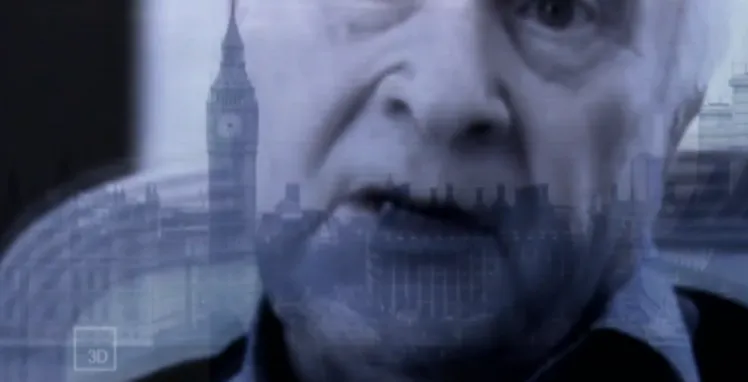Thermography in New Zealand
Craig Shearer - 31st July 2023

As I’ve commented in previous issues of the newsletter, I listen to the excellent podcast Be Reasonable, hosted by Michael Marshall (Marsh, as he’s colloquially known). In the latest episode (#083, released Wednesday 26th July), he interviewed Nyjon Eccles, a “functional medicine” doctor from the UK. He’s a promoter of thermography, which is an Infra-red imaging technique used to scan women’s breasts in an attempt to screen for differences in temperature from which, it is alleged, they can infer a possible tumour - that is, breast cancer.
I have to preface this item by stating that as a man, I’m certainly less qualified to write about this than a woman would be. Breast cancer is much more prevalent in women, though men seem to get it at about 0.5 - 1% of the rate that women do. Regular readers of the newsletter will also know that my wife was diagnosed with breast cancer last year, and is now in relatively good health after it. So, I feel I do have some personal experience that relates.
The interview on the podcast went as these usually do, with the guest laying out all sorts of questionable claims, and Marsh asking relatively tame probing questions which try to illuminate the guest’s beliefs and position. There’s no “debunking” of claims, and Marsh always treads the difficult path (if frustrating for the listener) of having a conversation rather than completely alienating the guest, even when they’re spouting complete pseudoscience.
The main points of the interview were that Eccles runs thermography clinics in the UK, and promotes their use as a screening tool for breast cancer, particularly with women who fall outside the UK screening programme (which primarily uses mammograms) and is targeted at women between 50 and 70 years of age. He claimed that thermography is a useful adjunct tool for screening, particularly with younger women and women with dense breast tissue. He claimed that, when used correctly, that the sensitivity and selectivity of the scanning was over 90% - though I note that there’s that “get out of jail free card” of “when used correctly”.
Eccles has trained as a medical doctor but stated that he has always wanted to go with the most “natural” treatments and avoid pharmaceutical products.
Thermography is seen as an alternative (or complementary) tool, and is outside of mainstream medicine. Rather than being offered by GPs, it’s generally provided by alternative practitioners, who are certainly unqualified to be giving advice about cancer.
Listening to the podcast interview I had a number of concerns, which I think most skeptics would share. Mammograms are an unpleasant experience for women, as they involve compressing the breast tissue in order to get a good scan. As they involve x-rays, there’s inherent risk with any radiation, which obviously scares people. But it seems that thermography is an unproven technique which may leave patients with a false sense of security - that a thermography scan reveals nothing amiss so no need to have a mammogram. Additionally, thermography is provided as a commercial service so there’s the cost that also has to be considered.
Eccles claimed that thermography could be used for diagnosis of breast cancer earlier than mammograms could detect it. Thermography has had a reputation of not being very accurate, though he claimed that improvements in software algorithms and proper techniques had improved the results. (It sounded like he was using some sort of machine learning algorithms to check the scans.)
Anyway, this led me to do a little investigation into the situation here in New Zealand. What is the availability of this here?
Firstly, checking with the Breast Cancer Foundation of New Zealand, they have a useful page on their website about thermography. It comes as no surprise that they do not recommend it:
“Its use is based on the theory that blood flow and metabolism are increased around a breast cancer, causing a measurable rise in skin temperature.
Currently the technology is unable to reliably detect small cancers or cancers deep in the breast tissue. It is significantly less accurate than mammography (which has a sensitivity and specificity of more than 90%) and is not a diagnostic tool, nor a stand-alone breast screening tool. It is unable to diagnose breast cancer and does not replace a mammogram. It is not used anywhere in the world on a breast screening programme.”
The page also contains a useful, and well-referenced PDF that goes into detail comparing thermography with mammograms. However, the document is quite old - being written back in 2010, so thermography might well have improved since then.
In New Zealand, thermography is provided by a company called Clinical Thermography Limited. They tour the country, performing the service at specific times during the year depending on location. I found them through their Facebook page, which contains a link to their own website and also to a website for the Breast Health Foundation.
The Breast Health Foundation website is now unavailable. Of course, the name sounds suspiciously close to the Breast Cancer Foundation - which is certainly legitimate.) Looking at the Wayback Machine Internet Archive site showed me pages from that site from several years ago.

I searched the charities register for Breast Health Foundation, and it shows that it has now been deregistered because it didn’t file annual returns. The foundation was registered by a Dr Paul Butler, with an address in Milford, Auckland. He runs the Milford Health Clinic, which, according to an article in Stuff from some time ago, is well on the alternative medicine side of things, with acupuncture and other “natural” therapies being offered.
There’s a bit of a theme running here… I also searched the NZ Companies Register for Clinical Thermography Limited, and that shows that the company has been removed. So it would appear that they’re trading using their company name while no longer registered.
Clinical Thermography’s website is obviously a promotional tool for thermography. If you want to have this service, it is going to cost you $250 a pop, which is a substantial amount of money, especially if it’s for a service of dubious value, and is recommended on a regular basis. Intriguingly, from the website, it appears that their service just provides the thermogram itself and it’s not clear whether any interpretation of the results is done. They do talk about abnormal thermograms and that these would indicate a need for a further investigation from a medical professional.
The company is run by Truly Godfrey, the daughter of a doctor, now retired, who started providing thermograms in NZ about 20 years ago. So, it’s a family business.
The page also has a post which is anti-fluoride, and also posts linking to NZDSOS (which we’ve covered extensively in the past) and to Voices for Freedom and Reality Check Radio posts! And, of course, they appear to be anti-vaccine too! Birds of a feather flock together is certainly a truism!
In digging into this, I found a couple of documentaries online. One was a pro-thermography and anti-mammography documentary called The Promise, which was mainly about screening in the UK.

The other was done by a TV3 program - 3D, which aired back in 2015. It had Melanie Reid (who we mentioned in our Bent Spoon awards last year) going on a bit of a mission to criticise New Zealand’s breast cancer screening programme - BreastScreen Aotearoa. That particular documentary seemed to me to be pretty sensationalistic, using dramatic music and video editing techniques, and even used snippets from The Promise. (I’ve not watched that movie, but recognised the snippets from the trailer.)

From my reading, and admittedly layperson understanding, there is some controversy around mammograms, but also a ton of questionable claims (for example, that mammograms themselves cause cancer - either through the radiation from x-rays, or from squeezing the breast tissue.)
Mammograms, like any screening technique, have a rate of false positives (as well as false negatives). The points raised in the 3D documentary were that some abnormalities detected in mammograms pointed to a type of cancer which may not be fatal - known as a Ductal Carcinoma In Situ (DCIS), and that women are being over-treated for a cancer which may not actually do them harm. The point is made that these carcinomas are non-invasive, and frequently do not metastasize and therefore remain “in situ” being of little risk. Indeed, it’s certainly possible that people will die of other causes while having one of these carcinomas.
It does seem that there is a lot of nuance in this area, but studies have concluded a positive benefit to screening. Indeed, back at the end of 2015, a robust study of our breast screening programme concluded a 29% lower breast cancer mortality rate for those screened compared to those who never screened. So, it does seem that the programme has benefits - and it’s better to be unfortunately over-diagnosed than to be dead - that would be my opinion.
In summary, I think that thermography is probably a service that has extremely limited benefits, and is likely to falsely assure women, and lead to avoidance of evidence-based screening. The excellent Science-Based-Medicine site had a great write up of thermography by David Gorski, though it’s quite old now, but still well worth a read.